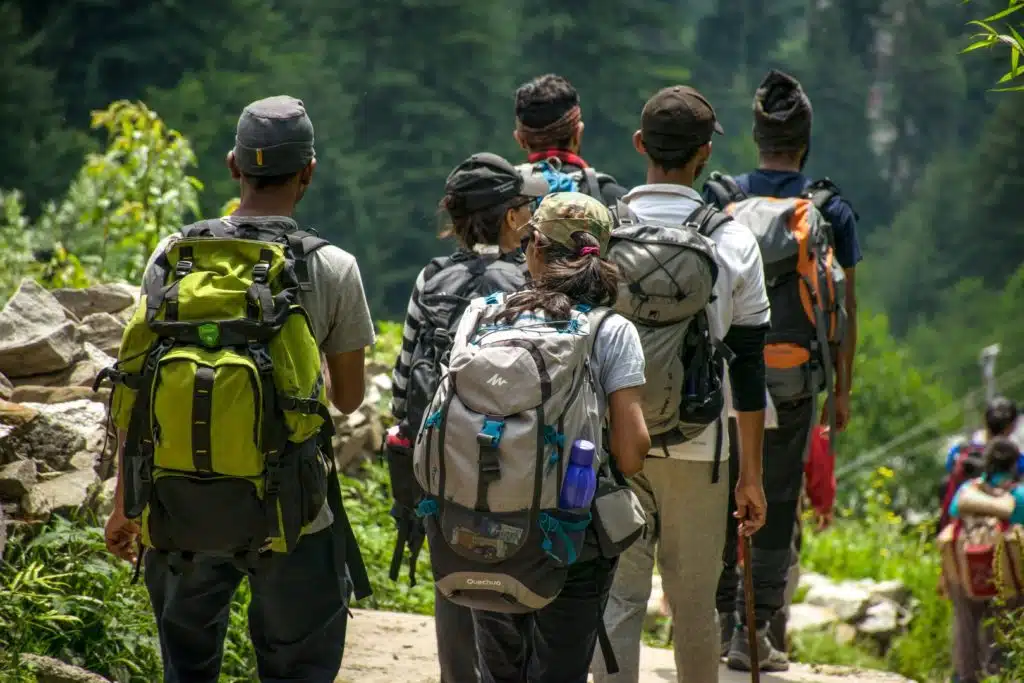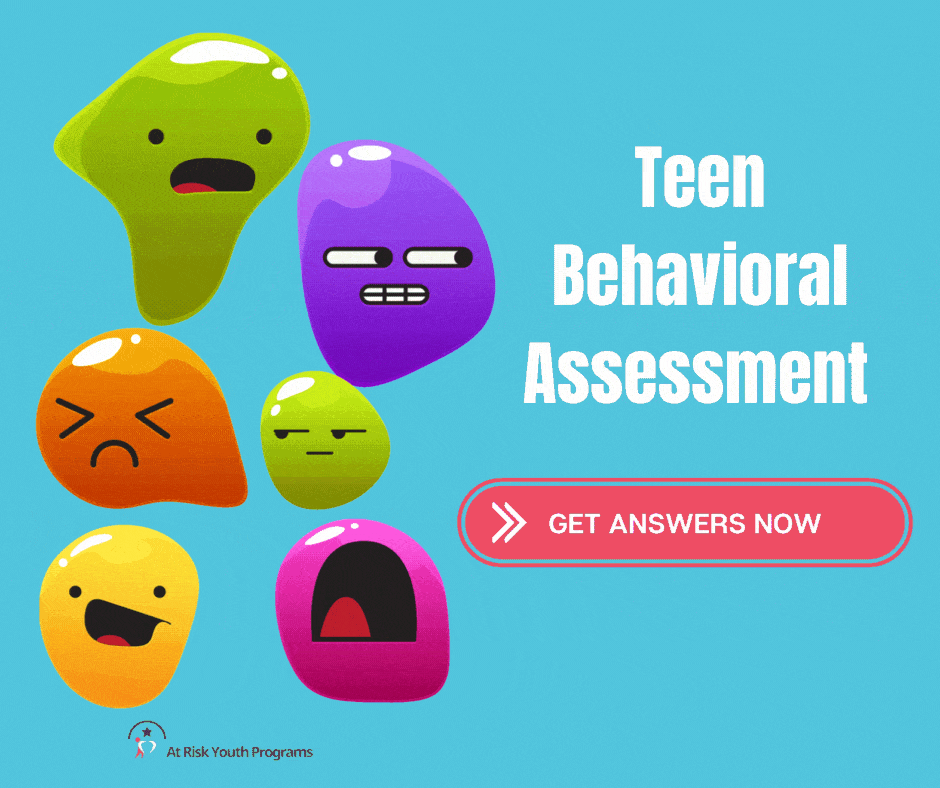
A Parenting Guide to Choosing the Right At Risk Youth Camp
A teenager at risk needs help and there are many ways this can be achieved. One of those ways is sending them to an at-risk youth camp. These camps, including wilderness therapeutic-style camps, traditional wilderness camps, and boot camps, offer structured environments and discipline, and some may offer psychological therapeutic support for at-risk youths.
Understanding their success rates, costs, and risks is imperative for parents to make an informed decision.
What Are At-Risk Youth Camps?
At-risk youth camps are specialized programs designed to help teens struggling with behavioral, emotional, or psychological issues. They take various forms, each with distinct methodologies and goals.
It is easy for parents to confuse wilderness therapy with boot camps, mistakenly believing they offer similar approaches to treating out-of-control teenagers or at-risk teens.
All of the marketing and promotional materials for “wilderness camps” make it sound like if the programs offer outdoor activities and a structured environment, then they must be a good choice for misbehaving or struggling teens.
However, it is important to understand that these programs use fundamentally different philosophies and methods. This misunderstanding can have significant consequences, as parents may unknowingly choose a program that will not meet their teen’s needs, potentially exacerbating existing issues.
Therefore, it’s essential to have a clear understanding of what wilderness therapy is and isn’t before exploring the different types of camps that incorporate this approach.

What is Wilderness Therapy?
Definition: Wilderness therapy combines therapeutic practices with outdoor activities in a natural setting, usually a picturesque, remote location. It provides a unique environment for teens to confront and overcome personal challenges.
Key Features:
-
- Therapeutic Focus: Licensed therapists lead programs, incorporating evidence-based individual and group therapy sessions into their daily routine for the duration of the program.
-
- Personal Growth: Engaging activities like hiking, camping, rock climbing, and survival skills foster self-esteem, resilience, self-reliance, and teamwork.
-
- Personalized Plans: Teens enrolled in therapeutic programs get an individualized treatment plan that focuses on specific needs and goals.
Benefits:
-
- Emotional Regulation: Teaches teens to develop coping skills and learn new strategies to better manage their emotions.
-
- Self-Reflection: Participants are encouraged to reflect on their past actions and personal growth through nature.
-
- Supportive Community: Provides a safe and supportive group environment for shared experiences, promoting a sense of connection and belonging.
Types of At-Risk Youth Camps
Boot Camps
Definition: Boot camps are programs modeled after military training programs. They emphasize discipline, physical fitness, and strict routines and are designed to modify behavior through discipline, structure and intense physical activity.
Key Features:
-
- Structured Environment: Participants are required to follow highly structured daily routines with strict rules and punitive consequences for non-compliance.
-
- Physical Training: Programs involve rigorous military-style drills and exercises, demanding activities designed to push participants to their limits. The focus is on physical exhaustion and mental toughness, and the intention is to prepare teens to handle adversity.
Behavior Modification: These boot camps are intense and focus on correcting behavioral issues by using restrictions and punishments.
Benefits:
-
- Discipline and Structure: Boot camps can instill discipline and provide a temporary structure.
-
- Immediate Results: The intense nature of the program can sometimes lead to rapid, albeit superficial, changes in behavior.
The Advantages and Disadvantages of Boot Camps for At Risk Youths
| Pros | Cons |
| 1. Short-Term Behavior Change: Some teens may experience short-term improvements in behavior and discipline. | 1. Controversial Methods: Boot camps have been criticized for their harsh methods, including verbal abuse, humiliation, and excessive physical punishment. |
| 2. Potential for Harm: The punitive environment is psychologically damaging, especially for teens with trauma or underlying mental health conditions. | |
| 3. Short-term Changes: The focus on external control and punishment fails to deal with the root causes of behavioral issues, leading to relapse after the teen completes the program. |
Costs: $0 – $15,000
Government or community-sponsored camps for delinquents are often free but have long waiting lists or require a juvenile court order. Federal and state grants often fund community programs aimed at preventing delinquency and supporting at-risk youth.
Programs like the Office of Juvenile Justice and Delinquency Prevention (OJJDP) offer grants to local organizations to create and sustain programs that address the needs of troubled youth.
Access this link to search for community mental health and wilderness camps that are funded by grants and government organizations.
Private boot camps offer 2 to 6-week programs that average from $3000 to $15,000, depending on accommodations, locations, and length. WE DO NOT SUPPORT NOR RECOMMEND BOOT CAMPS.
Risks and History of Abuse in Boot Camps
Boot camps have a controversial history marred by reports of physical, emotional, and even sexual abuse. The rigid, authoritarian approach can be traumatic for some teens, aggravating existing issues and creating new ones. Important Note: Due to the potential for harm, many mental health professionals do not recommend boot camps as a treatment option for at-risk youth.
Wilderness Camps
Definition: Wilderness camps focus on outdoor activities like hiking, canoeing, and camping, with the goal of building character, promoting teamwork, and teaching survival skills. While some may incorporate elements of personal growth, they generally lack a strong therapeutic component.
Key Features:
-
- Outdoor Adventure: Participants engage in outdoor activities designed to challenge them physically and mentally.
-
- Teamwork and Leadership: Wilderness camps emphasize the need for collaboration, better communication, and the value of leadership skills by having teens participate in group challenges.
-
- Minimal Therapy: These camps are staffed by college students and alumni who are not clinically trained. They do not employ licensed therapists or offer formal therapy sessions.
Benefits:
-
- Confidence and Independence: The challenges of the wilderness can help teens build confidence in their abilities and foster a sense of independence.
-
- Healthy Habits: Physical activity and time spent in nature promotes physical fitness and can be a welcome change that is good for their short-term well-being.
-
- Break from Routine: Wilderness camps offer a break from negative influences and a chance to focus on personal growth.
Costs: Typically range from $3,000 to $10,000 for programs lasting a few weeks to a couple of months.
The Advantages and Disadvantages of Wilderness Camps
| Pros | Cons |
| 1. Affordable: Wilderness camps are often less expensive than therapeutic programs. | 1. Lack of Therapy: Without a formal therapeutic component, these camps do not help teens work on their underlying emotional or behavioral issues. |
| 2. Teamwork and Resilience: The focus on teamwork and overcoming challenges can build resilience and confidence. | 2. Limited: These wilderness camps work best for teens who are starting to misbehave or need to build more confidence. They are not for teens with serious emotional or psychological issues. |
| 3. Physical Fitness: Activities promote physical fitness and a healthier lifestyle. | 3. Not for Everyone: The rugged nature of wilderness activities may not be suitable for all teens. |
Therapeutic Wilderness Camps: A Balanced Approach
Combining the Best Elements of At Risk Youth Camps
Therapeutic wilderness camps offer a unique blend of nature-based activities, wilderness exploration, and evidence-based therapeutic modalities, including individual therapy and group therapy to address specific psychological needs. They offer comprehensive support but require follow-up care for sustained improvement.
The Advantages and Disadvantages of Therapeutic Wilderness Camps
| Pros | Cons |
| 1. Comprehensive Approach: By integrating various therapies with nature and adventure, these therapeutic wilderness camps attempt to offer both emotional support and encourage behavioral changes. | 1. Short Duration: Programs typically last a few weeks to a few months, which is not enough time to address deep-rooted issues. |
| 2. Supportive Community: Most teens participating in these camps have similar experiences and struggles, which creates a strong sense of community and belonging among participants | 2. Requires Follow-Up Care: Ongoing therapy and support after completing a therapeutic wilderness program is necessary to maintain the progress made during the program. Long-term residential treatment centers (RTCs) or therapeutic boarding schools (TBS) can provide this continuity of care. |
| 3. Personalized Treatment: While most treatment plans and daily activities are standard, the therapists working with your teen will consider your teen’s unique needs and goals. |
Cost: The cost of therapeutic wilderness camps is similar to that of wilderness therapy programs, ranging from $10,000 to $50,000.
Long-Term Care Needs
To maximize the benefits of therapeutic wilderness camps, it’s often recommended that teens transition to a long-term residential facility like an RTC or TBS. These programs provide ongoing therapeutic support, academic instruction, and a structured environment to help teens maintain their progress and continue their healing journey.

Finding the Right Treatment for Your At-Risk or Struggling Teen
Deciding and choosing the treatment program that is right for your teenager takes time and research and, frankly and often, is hit-and-miss. Therapeutic wilderness camps can be a valuable starting point for a teen who benefits from a different environment. They allow parents time to find the right long-term solution without worrying that their children will backslide or hurt themselves.
However, the likelihood that a wilderness therapy option alone will address all of your child’s challenges is low. Therefore, it’s important for parents to consider long-term options like Residential Treatment Centers (RTCs) or Therapeutic Boarding Schools (TBS) to ensure your adolescent receives the right treatment from the outset.
Many RTCs offer holistic programs that combine wilderness therapy, academics and therapy. Enrolling your child in one of these programs is often a more effective approach and efficient financial investment, as you won’t be paying for two separate programs.
Evaluating Comprehensive Care At Risk Youth Camp Options
When evaluating therapeutic wilderness camps, look for programs that:
-
- Prioritize Therapy: Employ licensed therapists and offer evidence-based individual and group therapy sessions.
-
- Personalize Treatment: Create individualized treatment plans based on each teen’s specific needs and challenges.
-
- Track Successful Outcomes: Have a proven track record of success and provide resources for aftercare and follow-up support.
Note: It’s important to consult with mental health professionals and thoroughly research wilderness therapy programs to ensure they are reputable, licensed, and accredited.
Utilizing Therapeutic Consultants
Therapeutic consultants, also known as educational consultants, can be invaluable partners in your search for the right program. These professionals specialize in assessing a teen’s needs and recommend treatment options that are best suited to meet their needs. Their expertise can save you time, energy, and frustration, as they have extensive knowledge of various programs and their success rates.
Networking and Support Groups
Connecting with other parents who are facing or have faced similar circumstances will provide you with unbiased support and help you learn what not to do based on their experiences. Organizations like the BILY (Because I Love You) group offer a safe space for parents to exchange and share information. Online parenting groups can also be valuable resources.
How to Choose a Wilderness Camp for Your Teen?
Choosing the right program for your at-risk teen requires careful consideration. It is paramount to understand the differences between wilderness therapy, wilderness camps, boot camps, and therapeutic wilderness camps, along with their success rates, costs, and potential risks. While therapeutic wilderness camps offer the most balanced approach, their short duration usually requires follow-up care in a long-term residential facility for long-term healing and personal growth.
Conclusion
By conducting thorough research, seeking guidance from therapeutic consultants, and connecting with support networks, you can make the best decision to set your teen on a path to healing and growth. Remember, the journey may be challenging, but with the right support and resources, your teen can overcome their difficulties and thrive.
Worried about your teen's behavior?
Take the first step towards helping your teen. Our free teen behavioral assessment provides valuable insights into your child’s emotional well-being and can help you estimate their level of risk. Empower yourself with knowledge and take control of your teen’s future. Take our assessment today and discover the path to a healthier, happier family.
















